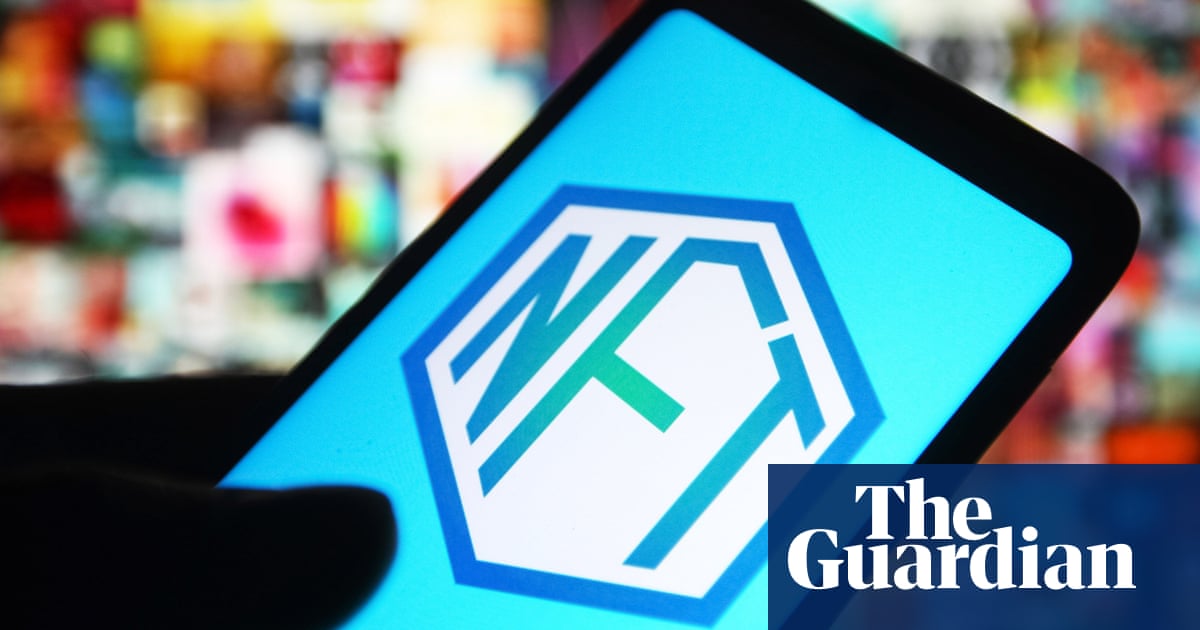
Rishi Sunak asks Royal Mint to create NFT | Non-fungible tokens (NFTs) | The Guardian
The Treasury has asked the Royal Mint to create a non-fungible token, or NFT, as it attempts to show Britain is at the cutting edge for new technologies by launching its own cryptoasset.
It said the chancellor, Rishi Sunak, had asked the 1,136-year-old institution to create the NFT – a type of unique digital asset stored on a blockchain, the same decentralised ledger of transactions used to buy and sell cryptocurrencies such as bitcoin – so it could be issued by the summer.
“This decision shows the forward-looking approach we are determined to take towards cryptoassets in the UK,” the Treasury said on Twitter, posting a picture of the royal coat of arms on a blue background.
NFTs use the unique blockchain value to confer ownership of something – whether tangible or virtual – with pieces of digital art, photographs or music increasingly popular. Typically bought and sold by collectors, some NFTs have soared in value and are worth millions of pounds, as buyers use them to flaunt their taste or wealth, or speculate on the price gyrations to make money.
The Treasury’s announcement did not specify what image or object the Royal Mint’s NFT would confer ownership of, whether more would be created, nor whether NFTs would be used to generate funds for the exchequer. A Treasury spokesman said more details would be announced “soon”.
The decision to launch an NFT is likely to raise eyebrows at a time when more than a million people in Britain are expected to fall into poverty this year after Sunak did not do more in his spring statement to cushion the poorest in society from soaring living costs as inflation hits the highest level in three decades.
The rise of NFTs has also led to a spate of scams and have become a target for hackers, losing consumers vast sums.
Sunak said it was his ambition to make the UK a global hub for cryptoasset technology through close oversight of the emerging sector. “We want to see the businesses of tomorrow – and the jobs they create – here in the UK, and by regulating effectively we can give them the confidence they need to think and invest long term.”
The government said it intends to legislate to bring stablecoins – digital assets usually pegged to a fiat currency such as the pound or the dollar – into its regulatory regime, meaning issuers and services providers offering such products in the UK would need to follow rules set by UK authorities.
Last month, Ukraine announced it would issue NFTs to help pay for its military after the Russian invasion of the country. The global NFT market reached $25.5bn (£19.4bn) last year, according to DappRadar, a firm that tracks sales, in a dramatic rise from $100m in 2020.
As with bitcoin and other cryptocurrencies, some economists have said the craze bears the hallmarks of a speculative bubble despite its potential as a powerful and innovative new tool for artists, musicians and publishers.
This content was originally published here.

![10 Best Augmented Reality Kits For Mobile AR Development [2022]](https://pakko.org/wp-content/uploads/2022/04/10-best-augmented-reality-kits-for-mobile-ar-development-2022-70x70.jpg)
